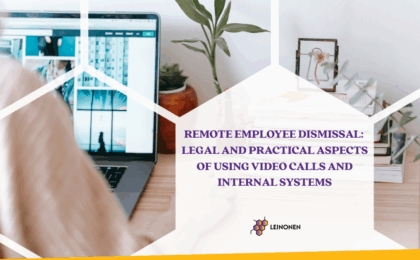The new law has been drafted according to provisions laid down by the Directive 2013/34/EU passed on 26 June 2013 by the European Parliament. Introducing principles of mentioned directive in the new law, administrative burden associated with the preparation of annual accounts on certain categories of companies will be eased. Below the most important.
Companies’ breakdown by categories
In line with the law companies will be categorised according to whether a company meets at least two of the following three criteria on the balance sheet date of the current and previous accounting year:
| Criteria | Microcompany | Small company | Medium-sized company | Large company |
1. | Balance sheet sum | 350 000 euro | 4 000 000 euro | 20 000 000 euro | if exceeds two of the critearia set for a medium-sized company |
2. | Net turnover | 700 000 euro | 8 000 000 euro | 40 000 000 euro | |
3. | Average number of employees in reportng year | 10 | 50 | 250 |
When calculating consolidated annual accounts, small, medium or a large concern will be subject to the same criteria that correspond to the criteria for small, medium or large company. It is provided that by calculating non-consolidated the applicable criteria “total balance sheet” and “net sales” for concerns shall be increased by 20%.
Content of annual account and financial statement
In future the micro companies and small companies will no longer have to prepare a cash flow statement and statement of changes in equity; the only component of the financial statements will be balance sheet, profit and loss statement and explanatory notes of the financial statement.
In addition, the financial statements will be significantly reduced by amount of information to be provided. For example, there will not be required to reflect average number of employees by category, composition of the share capital of shares, transactions with related parties, not included agreements, a deferred tax asset or liability balances at the beginning and year end, the net turnover in detail.
In addition, all micro companies will be exempted from preparation of management letter, but companies meeting the criteria set for taxpayers of the microbusiness tax (i.e. balance sheet total – 50 000 euro; net turnover – 100 000 euro; average number of employees per year – 5) – are exempt also from preparation explanatory notes of the financial statement.
Certified auditor audit and limited review conditions
In comparison with current provisions the new law provides significantly higher criteria for companies which annual accounts are subject to a review of certified auditor.
Hereafter, all large and medium-sized companies as well as small companies will be subject to the review of certified auditor, if two consecutive years two of the following criteria on the date of balance sheet will exceed:
· balance sheet sum – 800 000 euro;
· net turnover – 1 600 000 euro;
· average number of employees – 50,
and also those small companies which are the group’s parent company or those which is public person commercial.
The small companies whose balance sheet date indicators for two consecutive years will exceed two of the below criteria will be subject to a certified auditor to carry out a limited review of the annual accounts:
· balance sheet sum – 400 000 euro;
· net turnover – 800 000 euro;
· average number of employees – 25.
At the same time a small company instead of having to perform only limited review, will be able to choose full audit of the certified auditor.
Limited review of annual accounts is intended to contribute to improve the quality of financial statements, including corporate income tax compliance and “four eyes principle” consideration.
Annual accounts and consolidated annual accounts that meet the new requirements of the law, for the first time will be submitted for the reporting year 2016 (accounting year beginning on January 1, 2016 or beginning within the calendar year 2016).




